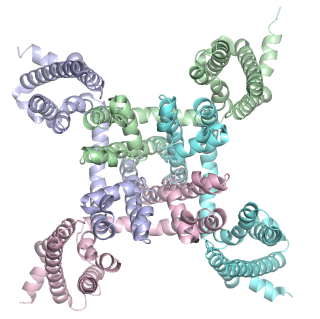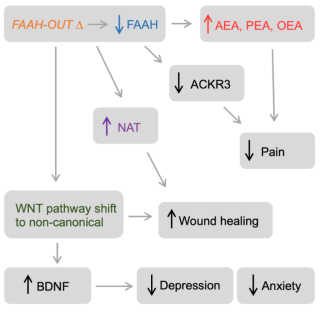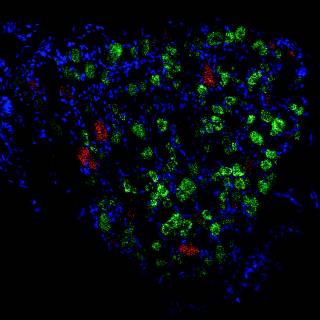HUMAN PAIN GENETICS

Tel: 020 7679 6704
Email: j.j.cox@ucl.ac.uk
Iris: https://iris.ucl.ac.uk/iris/browse/profile?upi=JCOXX25
James Cox is Professor of Human Pain Genetics in the Wolfson Institute for Biomedical Research (WIBR) and is also affiliated with the UCL Institute of Mental Health. James is Deputy Graduate Tutor for WIBR and module tutor for the UCL Precision Diagnosis for Precision Medicine MSc course.
For many years, Prof Cox has investigated the genetic basis of rare human pain disorders such as Channelopathy-associated Insensitivity to Pain (SCN9A/NaV1.7), Familial Episodic Pain Syndrome (TRPA1), Marsili Syndrome (ZFHX2) and FAAH-OUT-associated Human Pain Insensitivity. His team is particularly interested in how long non-coding RNAs regulate key pain genes and the endocannabinoid system. A major goal is to translate genetic findings into new analgesic gene therapies.
Key papers:
Mikaeili, H., Habib, A. M., Yeung, C. W. -. L., Santana-Varela, S., Luiz, A. P., Panteleeva, K., . . . Cox, J. J. (2023). Molecular basis of FAAH-OUT-associated human pain insensitivity. Brain, awad098. doi:10.1093/brain/awad098
Lischka, A., Lassuthova, P., Çakar, A., Record, C. J., Van Lent, J., Baets, J., . . . Kurth, I. (2022). Genetic pain loss disorders. Nature Reviews Disease Primers, 8 (1), 41. doi:10.1038/s41572-022-00365-7
Habib, A. M., Matsuyama, A., Okorokov, A. L., Santana, S., Bras, J. T., Aloisi, A. M., . . . Cox, J. J. (2018). A novel human pain insensitivity disorder caused by a point mutation in ZFHX2. Brain. doi:10.1093/brain/awx326
Cox, J. J., Reimann, F., Nicholas, A. K., Thornton, G., Roberts, E., Springell, K., . . . Woods, C. G. (2006). An SCN9A channelopathy causes congenital inability to experience pain. Nature, 444 (7121), 894-898. doi:10.1038/nature05413
Full list of publications:
https://iris.ucl.ac.uk/iris/browse/profile?upi=JCOXX25#tabsProfilePub
 Close
Close




